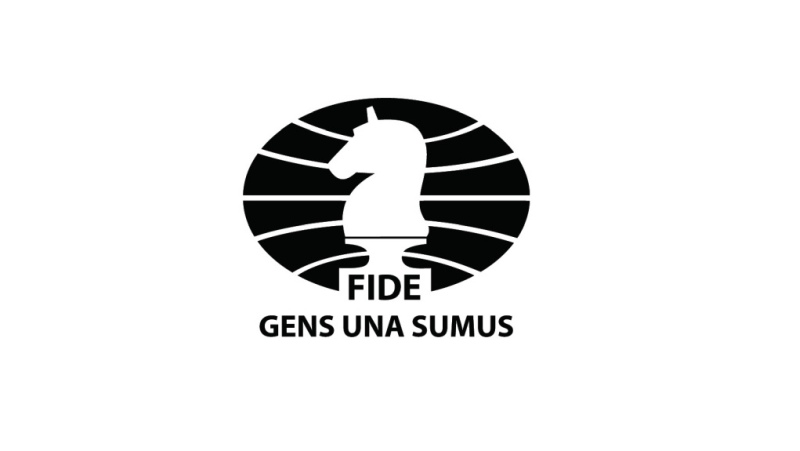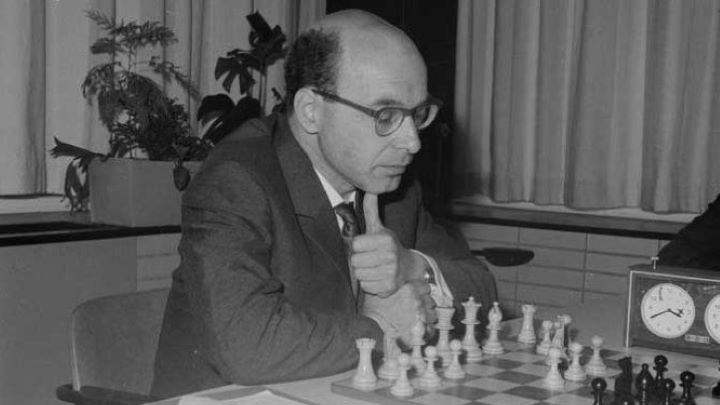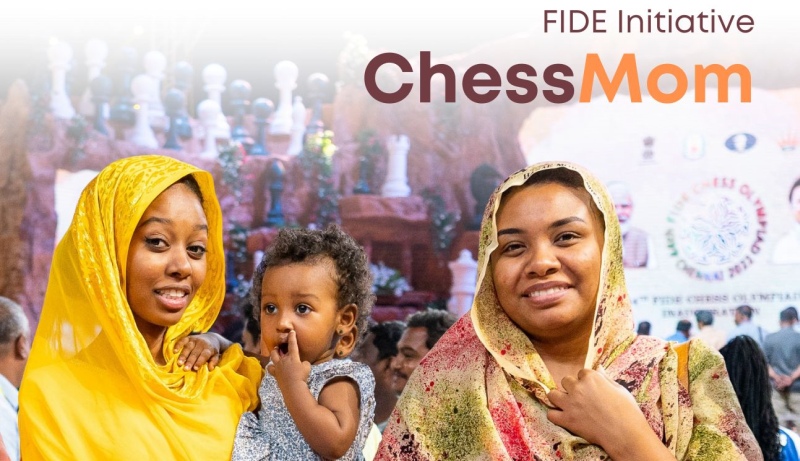FIDE World Cadet U8, U10, U12 Championships 2024: Call for Bids

FIDE Events Commission would like to announce the procedure “Call for Bids FIDE World Cadet U8, U10, U12 Championships 2024” and invite all FIDE member Federations to participate. The bid deadline is March 7, 2024, 15:00 CET. Dear bidders, more details about the procedure including the Bid Form and Bid Form Annex, Bid and Deposit Fees you can find HERE.
In memory of David Bronstein on the 100th anniversary of his birth

Today is 100 years since the birth of David Bronstein. David Bronstein was an outstanding grandmaster, and yet – a unique case for a man who almost became world champion – his immediate contribution to popularizing chess is no less important. Bronstein authored several great books. Along with Zurich-1953 (written for the most part by his senior friend and mentor Boris Vainstein), I would mention the remarkable “200 Open Games”. And how many wonderful and memorable articles he wrote how many insightful predictions! Judge for yourself: In his essays “On the Way to the Electronic Grandmaster” and “Chess of the Third Millennium”, Bronstein predicted much of modern computer and online chess, albeit in the terminology of 1978 (the book “A Beautiful and Furious World”, co-authored with Smolyan). “…A chess player would use a machine to extensively analyze the variants chosen based on his knowledge and intuition to test strategic ideas and control errors. It would have added at least 500 points on the professor A. Elo’s rating scale.” Photo: Eric Koch pour Anefo — Dutch National Archives, The Hague “Today, we don’t know any chess player, including the world champion, who, having made the first move, can recite all possible variations as he sees them on a tape recorder. But if the best chess players in the world were contesting with a microphone, everyone would hear how beautifully they think. However, FIDE is clueless that by organizing tournaments of talking grandmasters, the federations would gather an appreciative audience of millions. (In this case, you can’t hide your own helplessness behind other people’s moves.) Masters could use television technology to speak to the public in the language of chess symbols in such tournaments. Such a game, among other things, would remove certain inferiority from those playing since the public considers an unexpected move for themselves as a surprise for the grandmaster as well. And with closer contact, the audience would fantasize less and penetrate deeper into highly skilled and creative thinking.” “It is likely that some publisher will release a game of ‘Chess Tests’ in time. Different positions will pop out of a box for a certain amount of time, while a counter will indicate a score depending on the quickness of the solution choice.” Photo credit: D. Prants, via https://muis.ee “The Chess House Central Machine Service will appear, and you can join the computer by telephone and play with it if you like – the whole family. After the game, the computer will send you, along with your energy bill, a copy of the game.” Bronstein was a pioneer in many ways, and it is a pity that he did not become world champion. I think many of his original ideas would have received a much broader appeal. A pupil of Alexander Konstantinopolsky (by a funny coincidence, also born on February 19), he stood out both in his playing style and opening repertoire. Bronstein, along with Boleslavsky, is credited with introducing the King’s Indian Defense to the top competitive level. Thanks to them, the opening was for some time called the “Ukrainian Defence”, as two friends – Bronstein from Kyiv and Boleslavsky from Dnepropetrovsk – who had worked together since their youth, actually brought this opening into the highest tournament level. “Devik”, as he was called, played with great panache sacrificing pawns and pieces. The trajectory of his rise was very steep. Who knows how his fate and chess history would have turned out had he preserved the lead in the title match with Botvinnik in 1951? It was 11.5:10.5 on the scoreboard with just two games to play, and all he needed was not to lose. If Bronstein had held on then, many things would have been different. Having become vice-champion at 27, Bronstein could not overcome the shock of missing this chance. For another fifteen years after the match, he played at a high level and, most importantly, was bursting with ideas. Rapid chess is also Bronstein’s brainchild and even time increment called Fischer’s was originally spotted by Bronstein in Shogi, and only then, slightly modified, was adapted in chess. There were many other things: his books, where truth is mixed with fantasy but permeated with love for chess, different engaging formats, etc. Gradually, he got older; his marvelous ideas interspersed with eccentric ones, and more and more often, David reminisced about to the 1951 title match he had failed to win. This indelible bitterness was present in many of his late speeches and articles. It was felt in talks with him as well. I had a chance to talk to the legendary veteran quite a bit and even received a compliment from him during a game with van Wely (1997). After I made a subtle move, Bronstein, who hung around the table for a long time, waited for me to stand up, took me under the elbow and said in a loud whisper: “You’re playing 21st-century chess!” Photo: Anne Fürstenberg He was an eccentric, one-of-a-kind person who talked a lot, sometimes even losing his interlocutor’s attention. Bronstein gushed out most of his interesting ideas in his younger years. David lived a long life, but he was the kind of person who gave out almost the entire stock in the first half of the journey. Still, this alone more than suffices for a place in any chess pantheon. He loved chess passionately into his old age. David loved talking about it. He loved experimenting. He continued to play in tournaments even in his 70s. Bronstein always had a lot of fans, and the organizers opened doors for him. Was he a wise man as the artist portrayed him? Probably not. He was a man capable of thinking up countless original ideas. Sometimes paradoxical. Sometimes deliberately provocative. But they were brilliant and had far-reaching consequences. He was always in the limelight, no matter what he did, whether it was his brilliant play and top-level skills of a practical player, an array of ideas in the King’s Indian, Dutch,
FIDE launches the ChessMom initiative

FIDE Commission for Women’s Chess is pleased to announce a new initiative focused on supporting Professional Chess Players going through motherhood The ChessMom pilot project aims to provide support for professional chess players who are mothers of infants under one year old. Specifically, through this initiative, all expenses related to an accompanying or caregiver person for ten female players traveling with their infants to the 45th Chess Olympiad will be covered. Dana Reizniece-Ozola, FIDE’s Deputy Chair of the Management Board, expressed her support, drawing on her personal experience as a chess player and mother of four. “As a chess player and as a mother of four children and as someone who actively played chess, I understand how hard it is for mothers who are professional players to cope with both maintaining their career and living and fulfilling the critical role a mother has in the first year of their child. FIDE, therefore, fully supports this initiative by the Commission for Women’s Chess, and we will actively look towards other ways on how we can help and support chess mothers in the future,” said Dana Reizniece-Ozola. The Chess Olympiad organizer will recognize both the child and the accompanying caregiver as integral parts of the National Official Delegation, granting them all applicable rights. This includes discounted full board rates where applicable, with FIDE covering lodgings, meals, and any other applicable discounted fees as part of the Official Delegation. National Delegations should, therefore, consider a child and the accompanying caregiver as part of the National Official Delegation, with all applicable rights. “In recent years, we have seen many initiatives by FIDE in favor of Women. Now we address the most important one in their adult lives, motherhood. Our players should not have to choose between family and chess. I hope this pilot program transitions to become the norm in the near future,” said Francisco J Cruz Arce, WOM Member and ChessMom Project Leader. WOM urges National and Continental Federations to review and adjust their requirements for National Teams to include provisions for chess players who are mothers. The hope is that this initiative will evolve into consistent support for professional chess players experiencing motherhood during significant tournaments. “The idea of the project is to keep professional chess players in chess in the early stages following the birth of a child. Many chess players can’t come to the Olympiad and other chess events because there is no possibility for them to take care of a baby. This project can become a great social initiative,” said Anastasia Sorokina, WOM Chair. For more information, please contact the project Leader Francisco J Cruz Arce: fj_007@yahoo.com
FIDE Endorses ChessNoteR N6 & N9 devices

FIDE Technical Commission is delighted to announce that the FIDE Council has officially endorsed the ChessNoteR N6 and N9 devices (MB-2024-02). Developed by Black Mirror Studio, the ChessNoteR (chessnoter.com) is a groundbreaking approach to digitizing chess notations for offline gameplay. Deployed on two specially customized Android devices, the NEXUS 6 and NEXUS 9, this solution ensures heightened security and efficiency. The exclusive focus on the ChessNoteR software and essential device settings significantly enhances fair play measures in tournament conditions. Key features of these devices include streamlined tournament and opponent management, versatile board setting options, and the capability to easily transfer games to computers. Such innovations promise to benefit players in competitive settings substantially. We extend our heartfelt gratitude to IA Arasu B, IA Dinu-Ioan Nicula, and IA Hendrik du Toit of the FIDE Technical Commission for their diligent evaluation of these devices. For any inquiries or additional information, please contact Hendrik du Toit at secretary.tec@fide.com.
Cuban Championship: Ernesto Quesada and Lisandra Ordaz win titles

LX Cuban Absolute (Open) Championship and XLVIII National Women’s Championship were held almost simultaneously in the different parts of the island – Holguin and Pinar del Rio, respectively. The open tournament saw a close race of three top seeds, Luis Ernesto Quesada Perez, Omar Almeida and Carlos Daniel Albornoz Cabrera, who scored 7/9 and tied for first place in the end, finishing a half-point ahead of Lelys Stanley Martinez Duany. To determine the winner, a three-player tiebreaker was played in which Luis Ernesto Quesada emerged victorious, taking the title of Cuban champion. Omar Almeida finished second and took silver, while the top-rated Carlos Daniel Albornoz had to settle for bronze. Kudos to FM Kemel Antonio Gallo, who netted 6/10 and completed an IM norm. Final standings Open: 1 GM Luis Ernesto, Quesada 2560 7 2 GM Omar, Almeida Quintana 2506 7 3 GM Carlos Daniel, Albornoz 2603 7 4 GM Lelys Stanley, Martinez 2462 6½ 5 GM Dylan Isidro, Berdayes 2501 6 6 FM Kemel Antonio, Gallo 2348 6 7 IM Michel Alejandro, Diaz 2461 6 8 IM Jorge Roberto, Elias 2468 6 9 GM Ermes, Espinosa Veloz 2490 5½ 10 IM Rider, Diaz Murgada 2440 5½ The women’s event was also a close affair as IM Lisandra Ordaz Valdes and the youngest participant, WFM Leannet Mariah Bosch Valls, totalled 7.5/10 and shared first place. Another exciting tiebreaker took place a few hours after the final round, with Ordaz and Bosch facing each other in a duel for the national crown. After the opponents traded blows in the rapid 15+10 games, Lisandra Ordaz won both blitz games and clinched the title. As many as three players tied for third place, with Miranda Llanes Yerisbel winning bronze (just like in 2023) thanks to the superior rating average of the opponents. Final standings Women: 1 Lisandra Teresa, Ordaz 2310 7½ 2 Leannet Mariah, Bosch 2079 7½ 3 Yerisbel, Miranda Llanes 2262 7 4 Yaniela, Forgas Moreno 2265 7 5 Roxangel, Obregon Garcia 2118 7 6 Ineymig, Hernandez Gil 2143 6 7 Oleiny, Linares Napoles 2188 5½ 8 Melissa, Rodriguez Dominguez 2011 5½ 9 Amanda Maria, Muniz 2116 5½ 10 Vivian, Ramon Pita 2042 5 Photos: Cuba Chess Facebook Official website: supercubadatabase.simdif.com/

